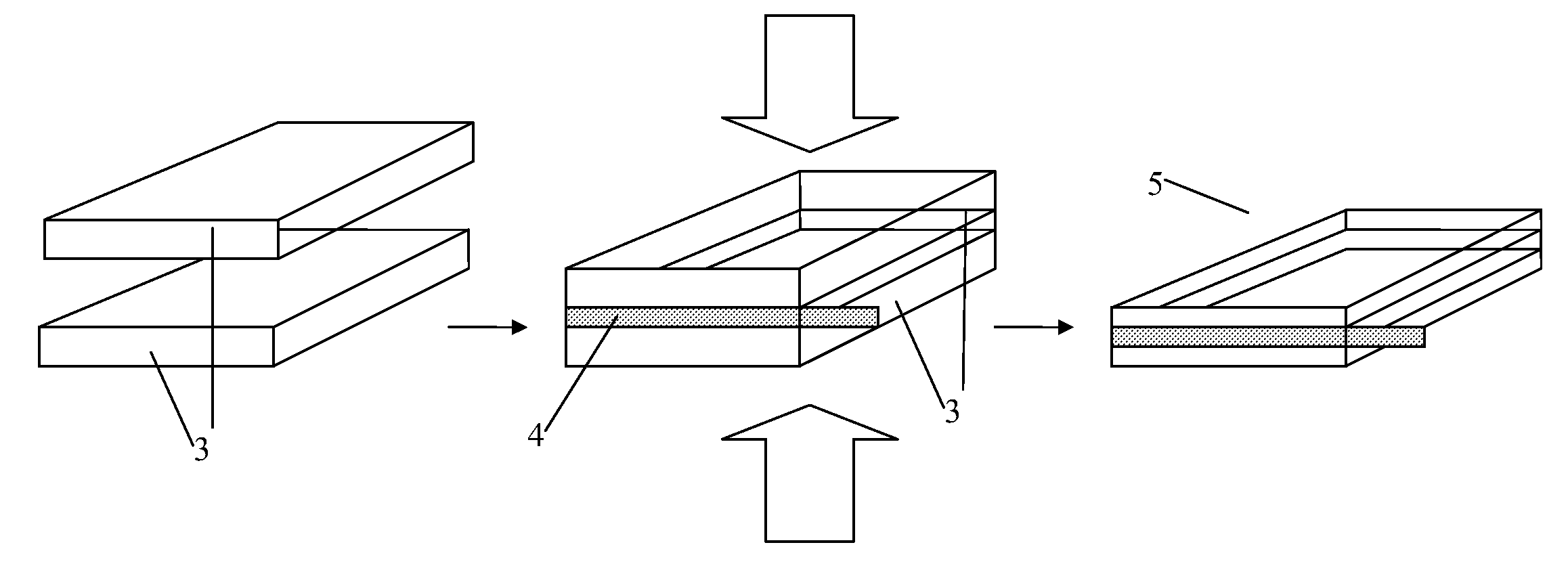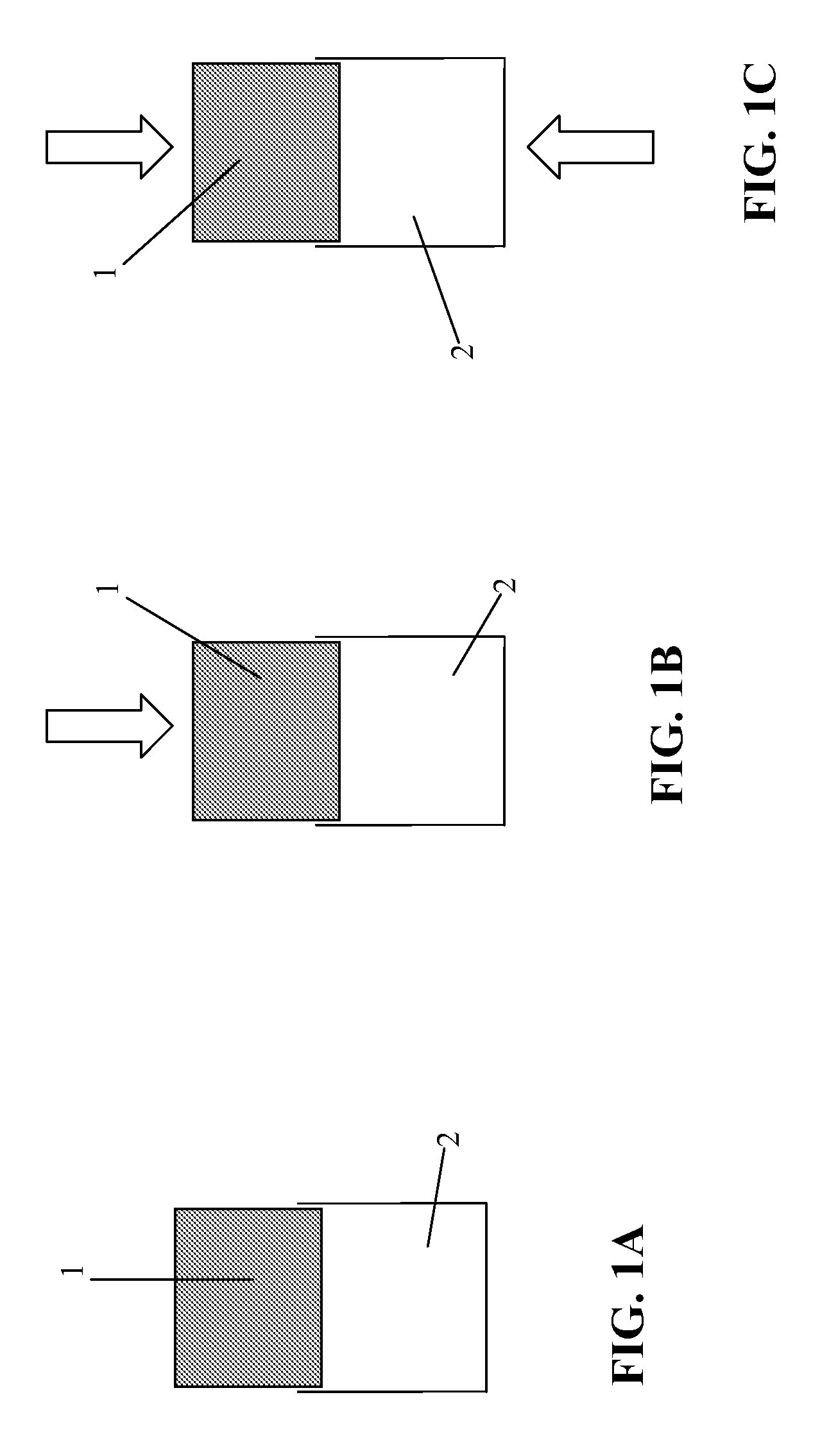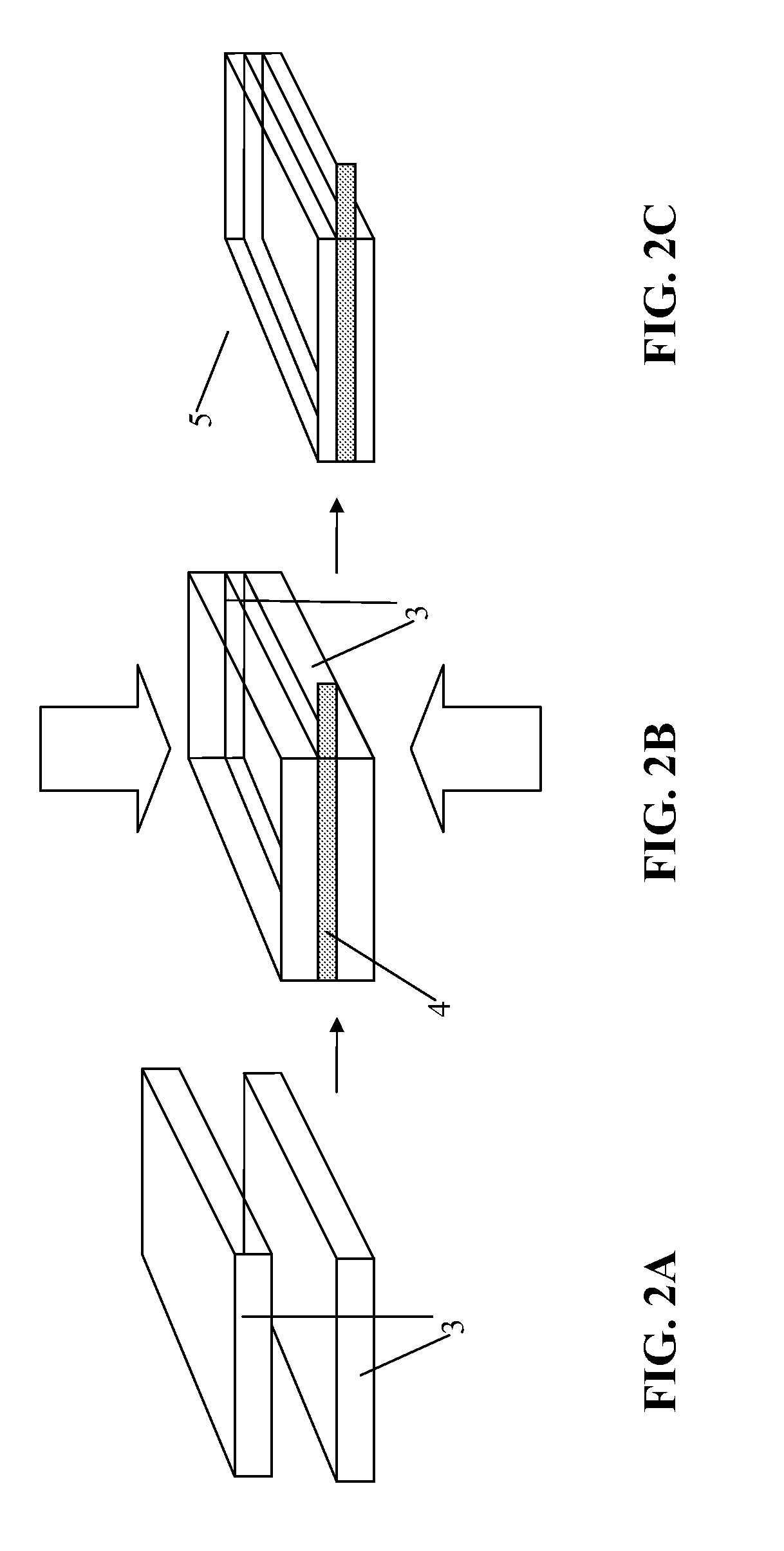Powder mixture for manufacture of a battery electrode, a respective battery electrode and a method for manufacturing same
a battery electrode and mixture technology, applied in the manufacture of electrodes, cell components, grain treatment, etc., can solve the problems of frequent limited useful life of dispersions, time-consuming and costly production of dispersions, and manifold advantages of this method, and achieve excellent shaping, no waste, and high mechanical stability of battery electrodes
- Summary
- Abstract
- Description
- Claims
- Application Information
AI Technical Summary
Benefits of technology
Problems solved by technology
Method used
Image
Examples
Embodiment Construction
[0092]The powder mixture comprises—as known from the prior art—the active material of the particular battery electrode, conductivity additives, a polymer binder and / or mixtures of various binders, and possibly additives. The manufacturing of the powder mixture comprising a granulate material is described below.
[0093]In principle, all electrode materials which may be produced in the form of a powder are suitable as active materials. Both active materials for producing cathodes and also active materials for producing anodes may be used. The active materials may be suitable both for producing primary batteries (i.e., non-rechargeable batteries) and also for producing secondary batteries (i.e., rechargeable batteries).
[0094]Examples of suitable active materials for cathodes are manganese dioxide, doped manganese dioxide, copper oxyphosphate, iron phosphate, lithium-cobalt oxides, lithium-nickel-cobalt oxides, boron-doped or aluminum-doped lithium-cobalt oxides or lithium-nickel-cobalt o...
PUM
| Property | Measurement | Unit |
|---|---|---|
| thicknesses | aaaaa | aaaaa |
| particle sizes | aaaaa | aaaaa |
| particle sizes | aaaaa | aaaaa |
Abstract
Description
Claims
Application Information
 Login to View More
Login to View More - R&D
- Intellectual Property
- Life Sciences
- Materials
- Tech Scout
- Unparalleled Data Quality
- Higher Quality Content
- 60% Fewer Hallucinations
Browse by: Latest US Patents, China's latest patents, Technical Efficacy Thesaurus, Application Domain, Technology Topic, Popular Technical Reports.
© 2025 PatSnap. All rights reserved.Legal|Privacy policy|Modern Slavery Act Transparency Statement|Sitemap|About US| Contact US: help@patsnap.com



